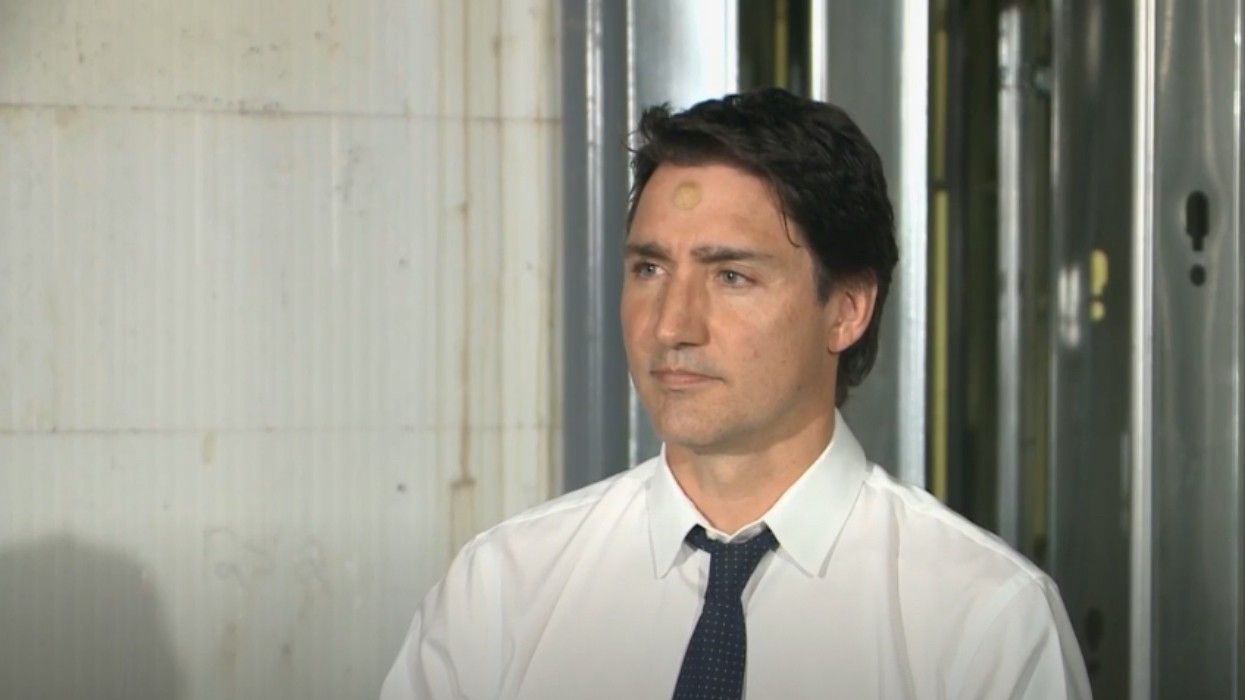Prime Minister Justin Trudeau is shifting the blame for Canada’s housing crisis onto municipalities, provinces, political rivals, and interest rates.
During a press conference in Hamilton on Monday, in which Trudeau announced a $64M investment in rental housing projects in the city, the Prime Minister addressed the country’s significant lack of supply, but evaded full responsibility for the burgeoning issue of affordability.
“Right now we’re facing a real challenge around housing in terms of supply. There’s simply not enough places for people to live right across the lower and middle income spectrum,” Trudeau told reporters.
“But I’ll be blunt as well, housing isn’t a primary federal responsibility. It’s not something that we have direct carriage of. But it is something that we can and must help with…It’s not just the federal government that can solve this.”
Municipalities must look for solutions to take the pressure off “all spaces of housing,” Trudeau said, while provinces “need to be stepping up as well,” particularly on affordable housing.
The Prime Minister pointed to his predecessor’s failure on the subject, noting that Stephen Harper’s government “pulled themselves entirely out of the housing business” for a decade. He also took aim at current Conservative Leader Pierre Poillievre, calling him a “big part of” Harper’s government, in which he held two cabinet minister positions.
Trudeau also pointed to high interest rates as the reason Canadians can’t afford their own homes. Once inflation falls and rate cuts begin, affordability will improve, he noted.
Meanwhile, he touted his government’s National Housing Strategy, an $82B plan intended to build up to 160,000 new affordable homes and repair existing units. When asked about renovictions, Trudeau said they were “entirely a provincial issue."
Although provinces and municipalities have control over zoning, land use, density, and approvals, the federal government has introduced ambitious immigration targets which aim to attract 465,000 permanent residents in 2023, 485,000 in 2024, and 500,000 in 2025.
In 2022, Canada’s population grew by 1.2M people, 60% of whom were non-permanent residents, such as refugee claimants or those with a work or study permit. According to a new report from TD, if the current pace of immigration continues, Canada’s housing supply gap could widen by 500,000 units within the next two years.
When it comes to settling asylum seekers, though, Trudeau said municipalities and provinces have “the large part of responsibility.”
For several weeks, more than 200 asylum seekers were forced to sleep on the streets of Toronto due to overcrowding in the shelter system, a situation Trudeau called "unacceptable." In response, Mayor Olivia Chow has asked the federal government to fund a welcome centre near Pearson Airport so that the City can keep track of refugees and their needs as they arrive in Canada.
Trudeau did not address whether he would fund the centre when asked by reporters, but did say he would continue work with Chow “in constructive ways.”
- Ottawa Gives $97M To Support Housing Asylum Seekers in Toronto ›
- Trudeau Promises New Housing-Based Infrastructure Plan This Fall ›
- Every Housing Promise Trudeau Made Ahead of His Re-Election ›
- Interest Rate Cuts In 2024 Will Hinge On “Pent-Up Demand” ›
- Housing Highlights From Trudeau’s Cabinet Retreat In PEI ›





















